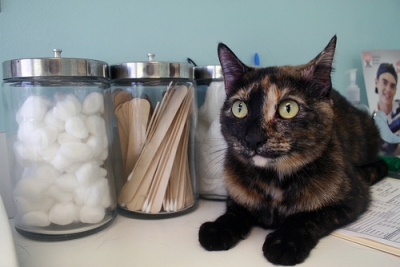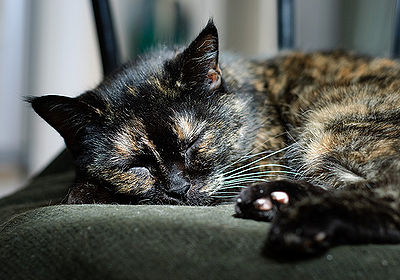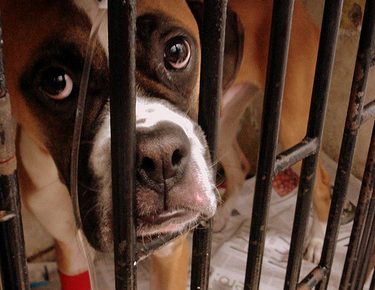
The Feline Herpes Virus, FHV-1, affects both domestic and wild cats. It is more commonly found in shelters, rescues and homes with more than one cat. While cats of any age can contract FHV-1, most at risk are kittens, older cats and pregnant cats who can transmit the disease to their kittens.
The virus is spread through the cat’s secretions, nose, eyes and mouth. Food and water bowls, litter boxes, beds, toys, all can spread the virus.
Symptoms can be coughing, sneezing, nasal discharge, conjunctivitis (pink eye), lethargy, eating little or not at all, fever. Ulcers can appear on face,mouth nose, eyes and sometimes spontaneous abortions can occur in pregnant cats. If there is permanent damage to the tissues of the nose and sinuses, cats can be prone to chronic infections.
Treatment is generally supportive – fluids, appetite stimulants to prevent anorexia. Sometimes warming food helps to stimulate appetite. If your cat is not eating in spite of all your efforts, contact your veterinarian.
A healthy immune system will help keep the infection from escalating into something more serious.
An infected cat who appears well again can still carry the virus for up to 3 weeks.


